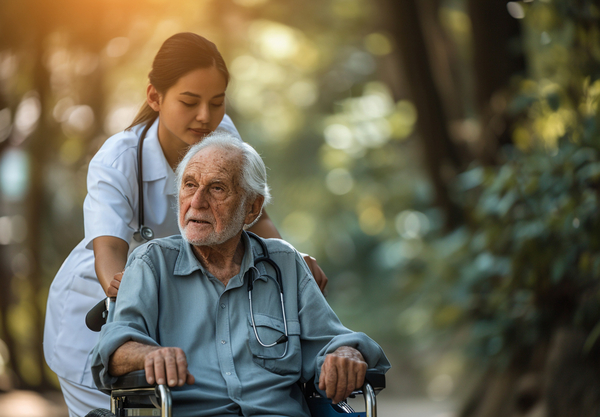Living with a rare disease can often feel like being adrift on an island, separated from the rest of the world by the sheer uniqueness of your experience. It's a place where very few people understand the daily struggles, the endless doctor visits, the uncertainty of treatments, and the emotional toll it takes.
But a bridge connects these isolated islands rare disease support groups. These groups provide more than just emotional comfort; their lifelines, knowledge centers, and advocacy platforms help patients and their families direct the complex world of rare diseases.
The Heart of Community: Rare Disease Support Groups
Rare disease support groups aren't your average health forums or general advice networks. They are deeply rooted in shared experiences and mutual understanding. When someone is diagnosed with a rare condition, it's not just the patient who's impacted; their families and caregivers are too. Support groups become a haven where individuals connect with others who truly "get it." The importance of this connection cannot be overstated.
Knowing they aren't alone in their journey can be transformative for rare disease patients and caregivers alike. It provides emotional grounding, boosts mental health, and offers practical advice on day-to-day life. Whether it's how to manage symptoms that specialists see or simply venting frustrations, support groups are a sanctuary.
Knowledge Beyond the Medical Textbook
One of the most overlooked aspects of rare disease support groups is the wealth of knowledge they offer. While doctors can provide medical advice, support groups offer lived experiences of what works, what doesn't, and what's worth trying. It's like having an insider's guide to rare disease management.
A lot of this goes hand-in-hand with rare disease patient advocacy. Support groups often involve members in advocacy efforts, lobbying for better healthcare policies, treatment access, and increased research funding. These advocates are warriors in their own right, working tirelessly to bring attention to conditions that most people have never heard of. Through these efforts, rare disease patient advocacy is gaining traction, changing laws, raising funds, and spreading awareness.
Empowering Through Rare Disease Patient Concierge Services
Imagine if there was a dedicated service that helped patients and their families navigate the overwhelming and confusing world of rare diseases. Enter the rare disease patient concierge. These services act as personal guides, connecting patients with the right doctors, treatments, clinical trials, and support services.
Rare disease support groups are often critical in directing people to these concierge services. Someone newly diagnosed might not know where to start, but through their support group, they can get personalized recommendations on services that offer hands-on support, whether it's managing appointments, understanding insurance, or exploring treatment options abroad.
Often discovered through support group recommendations, make dealing with a concierge services rare diseases less daunting and overwhelming. The combination of emotional support from the group and practical help from the concierge service forms a powerful alliance in a patient's care.
Digital Support: Expanding Networks Across Borders
One of the most exciting aspects of today's rare disease support groups is their global reach, largely thanks to the digital world. No longer limited to in-person meetings, these groups thrive online. Social media platforms, specialized apps, and dedicated websites allow rare disease patients to constantly connect with others instantly.
Global networks are crucial, especially for rare diseases with sparse patient populations. Tapping into the knowledge, resources, and support of a worldwide community is priceless.
Digital support groups also serve as a lifeline for those needing access to local support networks. For people in remote areas or those who are too ill to attend in-person meetings, online support groups give a safe space to find advice, share stories, and feel less alone. Beyond that, they become vital hubs for advocacy efforts, allowing members to collaborate on projects to raise awareness and improve care globally.
Advocacy That Grows From Support Groups
Recognizing that advocacy often grows organically out of support groups is essential. Rare disease patient advocacy starts at the grassroots level. People sharing their stories, frustrations, and victories in a support group can inspire collective action. They see firsthand the gaps in healthcare, the struggles with insurance, and the lack of treatment options.
Some support groups evolve into full-fledged advocacy organizations, increasing visibility and impact. By banding together, patients and caregivers amplify their voices, gaining attention from lawmakers, healthcare providers, and pharmaceutical companies. Real change can happen when people unite for a common cause, and in the rare disease world, support groups are often where that unity begins.
Caregivers Need Support Too
Remember the caregivers, who often shoulder rare disease care's emotional and physical burden. Just like patients, caregivers need support; rare support groups recognize this. Many groups offer dedicated spaces for caregivers to share their experiences, find advice, and receive the emotional backing they need.
Support groups for caregivers focus on practical aspects, like managing daily care tasks, juggling medical appointments, and balancing work with caregiving responsibilities. They also provide emotional validation. Being a caregiver can be mentally and physically tiring, and acting with others in the scan is fabulously reassuring.
Finding Strength Together: A Lifelong Journey
For many, rare disease support groups have become lifelong anchors. They're not just a place to go when things get tough. They're communities where patients and families stay connected, even when their medical situation changes or improves. Friendships built through these groups often last a lifetime as members continue to support each other through different phases of life.
Ultimately, these support groups are more than just places to discuss symptoms. They empower networks offering rare disease patient advocacy, practical knowledge, and a sense of belonging. By coming together, patients, caregivers, and advocates form a collective strength that can take on even the rarest challenges.
Conclusion
Rare disease support groups are more than just communities; they are lifelines. Whether through rare disease patient concierge services, advocacy efforts, or simply sharing personal stories, these groups form a foundation of strength for everyone involved.
By building connections and sharing knowledge, these networks empower patients and caregivers to navigate their rare disease journey with more hope and less isolation.



